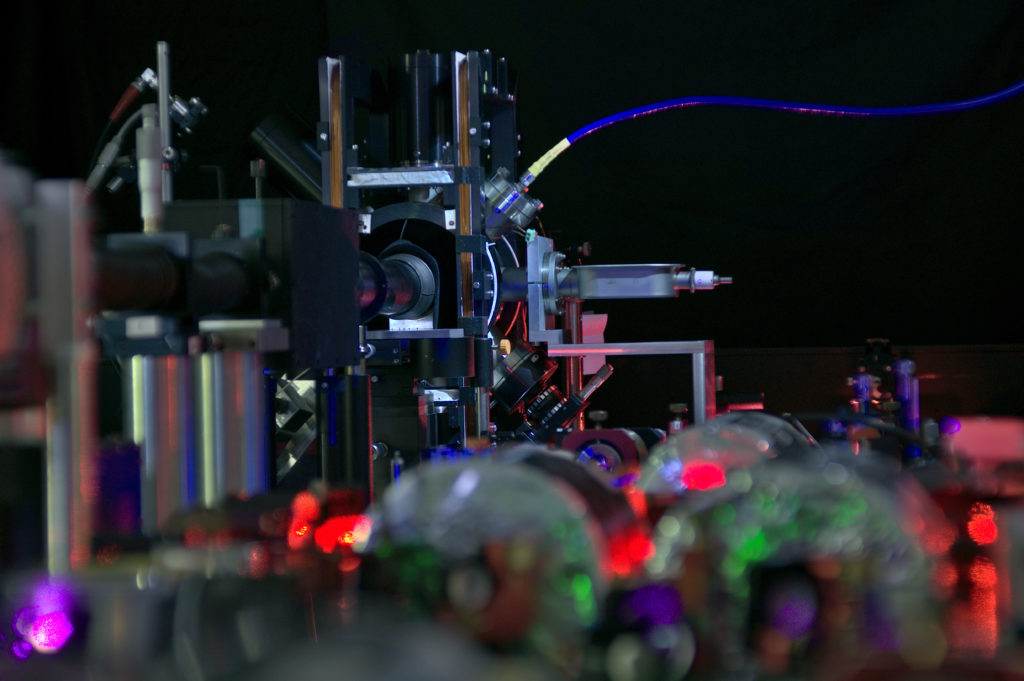Across the globe governments, universities, start-ups and corporations are engaged in a race to develop one of the most disruptive technologies of a generation: quantum computing.
The ability to harness the power of quantum mechanics to process complex computations could make quantum computers exponentially more powerful than even the fastest supercomputers. This immense potential promises hitherto unattainable breakthroughs in a wide variety of fields by empowering mathematical solutions for chemical reactions, climate models, financial simulations, machine learning or complex logistical problems.
But for all its benefits, quantum computing also represents a considerable threat to global cybersecurity: Quantum algorithms could break standardised public-key encryption, currently the global security basis protecting data integrity, data access and all communication between internet-connected devices.
The emergence of quantum computing constitutes a technological revolution – but we’re not there yet.
From nonviable, experimental set-ups…
Today’s quantum computers are primarily complex experimental prototypes, including a handful of commercially accessible platforms with limited capabilities. Despite common misconceptions, their ability to solve conventional problems still lags behind classical computers. Most notably, they are extremely fragile and can only perform under tightly managed conditions, as even slight atmospheric changes in temperature, pressure, or electromagnetic influences can cause major sources of error. In addition to the delicate management of their environment, their deployment in industrial contexts is hampered by an overall lack of collaboration and coordination. Siloed, experimentally custom-built architectural system components are obstructing the path to serial production, greater compatibility and the plug-and-play approaches required for broad adoption.
Although Europe is (still) a leader in theoretical research, we have fallen behind in the race to build operational quantum computers. Growing concerns about the EU’s technological sovereignty and future competitiveness have created a renewed sense of urgency among policymakers to promote the industrial development of quantum computing technology.
… to industrially scalable quantum computers
In 2021, the German Federal Ministry of Economic Affairs and Climate Action invited scholars, disruptive startups and established industry players to collaborate on the development of modular and scalable Quantum computing architectures. Under coordination of the German Aerospace Center (DLR), NXP® Semiconductors joined forces with the quantum computing startups eleQtron, ParityQC and QUDORA Technologies as well as the Technical University of Hamburg. The goal: to build quantum computers based on ion trap technology.
A first step was to establish a Quantum Innovation Center at the NXP campus in Hamburg to facilitate collaboration between partners and to foster the development of a local quantum computing ecosystem. Our undertaking comprises two consortia, one under the lead of NXP, and three distinct projects: a 10 Qubit demonstrator slated for completion by 2024, along with a 50 Qubit prototype, as well as a modular and scalable platform with interconnected Q-chips by 2027.
From lab to fab
How does NXP – a pioneer in secure connectivity solutions for embedded applications and solutions for the automotive, industrial & IoT and mobile markets – contribute to this project?
First, as a manufacturer of chip-based detection logic and sensor technologies, we possess considerable know-how in the scaling and miniaturisation of physical applications. Some of our proven products and procedures are becoming key components of the innovative quantum computing architecture, with the strong advantage that their high degree of interoperability and standardised designs are well suited for industrial production in large quantities. Future modular quantum computers will need key components such as control electronics to embed quantum computing in a classical computing environment, cryogenically suitable packaging as well as photon detectors for the reading of quantum states. These are ground-breaking setups. By integrating our well-established technologies, we set the foundation for dependable and industrially scalable quantum computing hardware.
Second, our proficiency in bringing together bright minds to create breakthrough technologies and our experience in the scale-up and roll-out of innovations will help ensure the development of marketable solutions and the sustainable growth of the emerging quantum computing ecosystems.
Third, we are also preparing for the challenges these advanced systems will represent: For almost a decade, NXP has been working on post-quantum cryptography (PQC) algorithms designed for use by traditional computers. These will become necessary to protect encrypted data and connected devices from attacks from quantum computers. Our efforts were recently recognised, when a NXP-co-developed algorithm was selected by the National Institute of Standards and Technology (NIST) for PQC standard development in the US.
A quantum leap for Europe?
Europe has a lot to gain from the development of first-of-a-kind, industrially scalable components and the creation of a quantum computing ecosystem on European soil. A stronger position in the global tech and research landscape would greatly benefit Europe’s technological sovereignty. Trustworthy, secure and reliable quantum computing technology will also be key to safeguarding sensitive data, reinforcing cybersecurity and promoting new industries and job opportunities. These achievements could foster new global strategic partnerships and collaborations, reinforcing Europe’s influence in the field of quantum technology and beyond.
However, to realise this scenario, we must compete in a global race for game-changing technologies in which Europe’s private sector is burdened by home-made disadvantages. To avoid falling behind, national and EU policymakers must look beyond the comfort of theoretical research to consider the entire path of translating brilliant ideas into tangible and commercially viable innovations. Purpose and pragmatism must revitalise EU industrial policy: enacting substantial and targeted R&D programs without inefficient scattergun approaches and overbureaucratic requirements; making allowances for the uncertainties of groundbreaking R&D; closer coordination with industry stakeholders to assess market capabilities and specificities; and streamlining awarding procedures to ensure that projects are not jeopardised by delayed approvals or funding distributions.
Europe needs to accelerate breakthroughs that will advance our world. At stake is nothing less than spearheading the next technological revolution.


